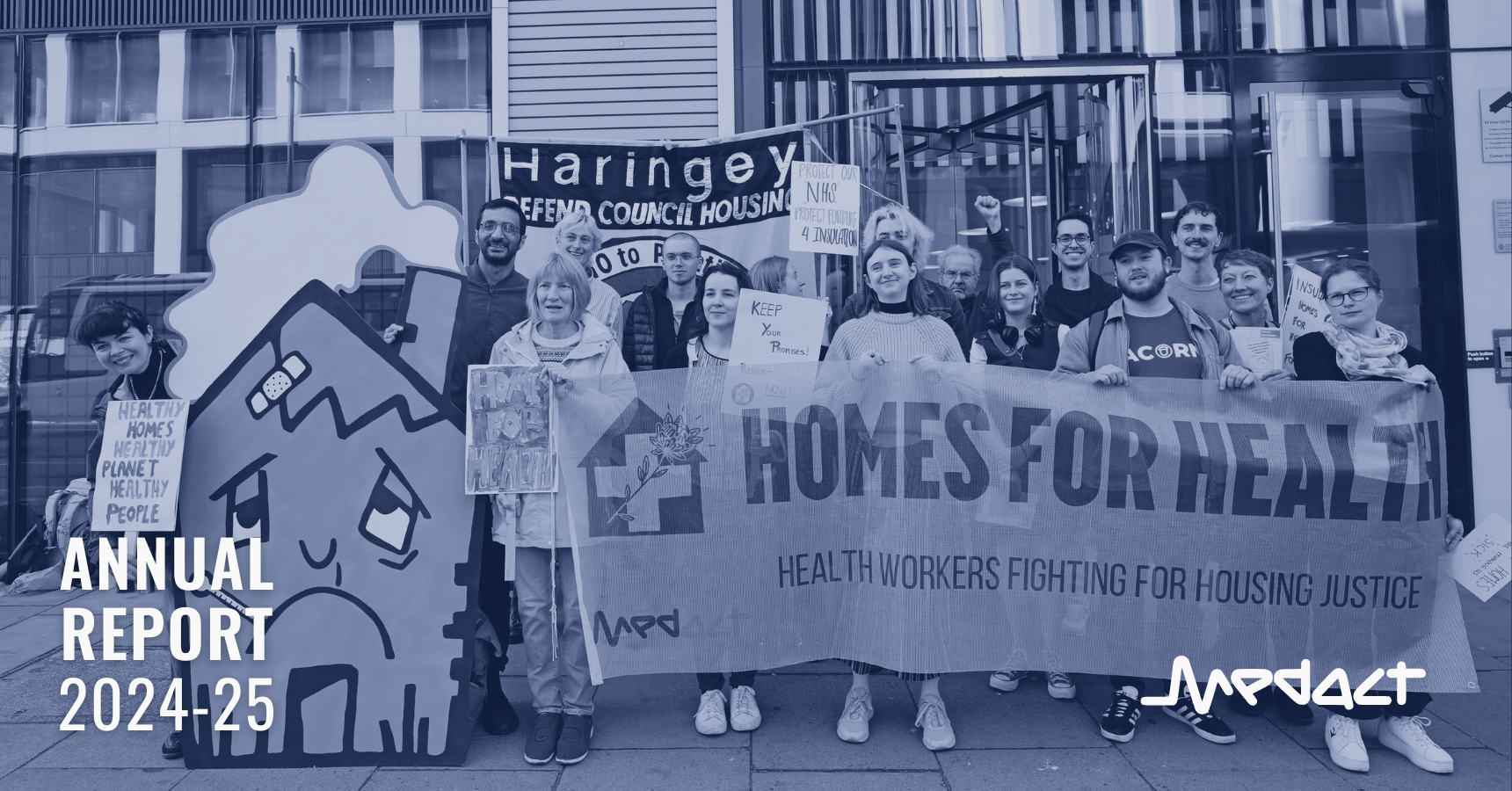
This is the second article published as part of our Annual Report 2024-25
In the UK, the climate crisis has often been framed as an issue affecting other people – global warming may eventually reach our shores, but for now, it’s a problem for poor people in the third world. This view is not only factually incorrect but also morally indefensible. Worse, it’s a recipe for disaster. With the trajectory of the climate crisis, it’s critical that people here, in the imperial core, recognise their stake in this crisis – not just to protect their own lives but to help avert a global catastrophe that will lead to millions of deaths.
To address the interconnected crises of climate, housing and energy, Medact’s climate programme has, since last year, aligned with our economic justice work under the banner of Homes for Health. This strategic shift connects our climate work with urgent housing and energy issues, emphasising that the climate crisis is no longer a distant threat – it’s here, already knocking on our doors. The economic and health burdens caused by a broken energy system, coupled with shoddy, inefficient housing, are the most immediate ways people in the UK are being harmed by the climate crisis.
Climate justice as health justice
At the heart of both the climate and housing crises is a shared cause. Driven by capitalist greed, the global fossil-fuel energy system is pushing us to the brink of complete climate breakdown. Impacts are already being felt globally, and with a three-degree rise in global temperatures inevitable, the situation will only worsen.
While communities in the global south are harmed by wars over oil and reckless extraction that poisons people and land, the UK is grappling with its own impacts. Fuel poverty is claiming lives, as the poorest are forced to choose between heating their homes and feeding their families, in a country with some of the world’s highest concentration of wealth.
The health harms from cold, damp homes are glaringly obvious, as our members see in their frontline work daily. Respiratory illnesses, cardiovascular problems, asthma and poor mental health are all exacerbated by inadequate housing and energy access. These harms are directly linked to a structural problem in the UK’s energy system: privatised energy and for-profit housing systems that prioritise profit over people’s health.
Our reliance on volatile fossil fuel markets, paired with underdeveloped renewables, has left many households facing unaffordable energy costs. Add in the inefficient, poor-quality housing stock – that ranks among the worst in Europe – and well over a decade of austerity putting the squeeze on people’s incomes, and it’s clear that many people in the UK don’t have access to the energy they need in order to stay warm and healthy.
In addition to a shared cause, these crises have a shared solution: a just energy transition that will deliver both lower emissions and warmer, healthier homes.
We need to reach zero emissions yesterday to avert the climate catastrophe – but doing so as soon as possible also gives us the opportunity to redress the UK’s broken energy system, with publicly controlled, fully renewable energy that’s accessible to all while creating green jobs.
The role of health workers in a just energy transition
Through organising efforts, health workers can connect frontline medical experience and patient stories with the systemic causes, making the case for policy demands that protect both people and the planet. Health workers are therefore well positioned to use their voices as levers to shift power – as part of community grassroots campaigns, in solidarity with and led by residents, for warm, affordable and sustainable homes – and to advocate for policies that end fuel poverty.
Cold homes and fuel poverty have rightly become a major topic in the media, and health workers have a key public advocacy role to play. By sharing their experiences as witnesses to the harm of cold homes, showing that fuel poverty is a health crisis, while giving a public health framing to the demands for urgent climate and housing policy action – such as funding for insulation, energy price guarantees and renter protections – they can help shift the narrative and push for the urgent policy changes.
Action for national policy wins
Winter Fuel Payments
The Labour government came to power last year on a platform of neoliberal continuity, and true to their word they promised unnecessary cuts that would kill. This included cuts to Winter Fuel Payments, a meagre and insufficient but lifesaving policy providing support.
We opposed this move from the first mention, with a media blitz bringing the health-community voice to the narrative. We organised for more than 400 health workers to deliver a letter to government officials demanding action on the deadly health impacts from cold and damp.
Medact Bristol member Martín Valls Garcia penned a Tribune piece, ‘Cold Homes Kill’, saying the cuts would “exacerbate a cost-of-living crisis that many people are struggling to survive, the consequences of which are seen in our waiting rooms in A&E and general practices.” And London member LJ Smith wrote a powerful opinion piece in the Metro, telling the stories of patient impacts she sees as a respiratory consultant.
We were proud to be part of the mounting pressure, in coalitions including Warm This Winter and the End Fuel Poverty Coalition, that brought about the government U-turn on Winter Fuel Payments in June 2025. While this is only one part of the solution, it’s an important win that will continue to save lives while we push for more comprehensive systemic changes.
The Warm Homes Plan
The same new Labour government came into power with the election promise to reduce energy bills and invest at least £13.2 billion into a nationwide Warm Homes Plan. However, by 2025, that promise was wavering. In response, we, alongside renters’ rights groups and campaigners, demanded that the government honour its commitment. We launched an open letter to Wes Streeting and published a report, Home, Sick Home, which outlined the extent to which inadequate housing impacts the work and lives of health workers.
When the government failed to respond, we escalated the pressure. Medact members – together with tenant unions, Fuel Poverty Action and energy-efficiency campaigners – held a protest outside the Department of Health and Social Care, and delivered our open letter, signed by several royal colleges, to Wes Streeting, calling for life-saving energy efficiency schemes to be maintained. We also held a roundtable in parliament with a coalition of health workers, renters and campaigners where we spoke about the experiences of tenants in the Nags Head estate in London.
By June 2025, coordinated pressure across the UK led to a second government U-turn, reaffirming its commitment to the Warm Homes Plan.
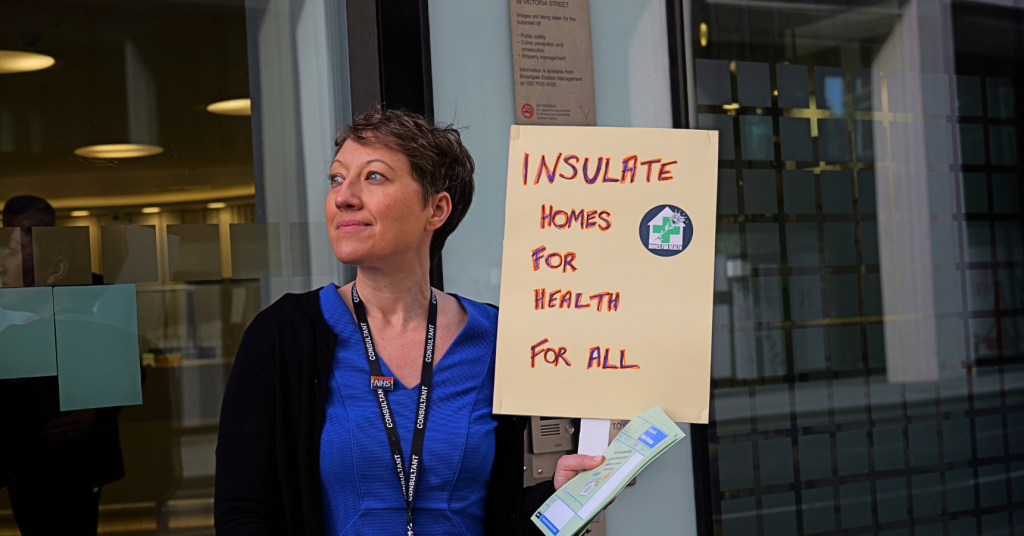
Collective action: The path forward
These wins demonstrate that lasting change is possible through collective action. When communities and health workers unite in coordinated pressure, they can save lives and shift policy.
As we look ahead, we will continue to fight for a world in which every household has a warm, affordable and sustainable home. Our work will continue to focus on building alliances between health workers, tenants, renters and climate activists so that we can push for a just energy transition. Ending fuel poverty is not just an aspiration; it’s a necessity. Through collective action, we can create the systemic changes needed to protect both our health and our planet.
Medact Annual Report 2024-25
-
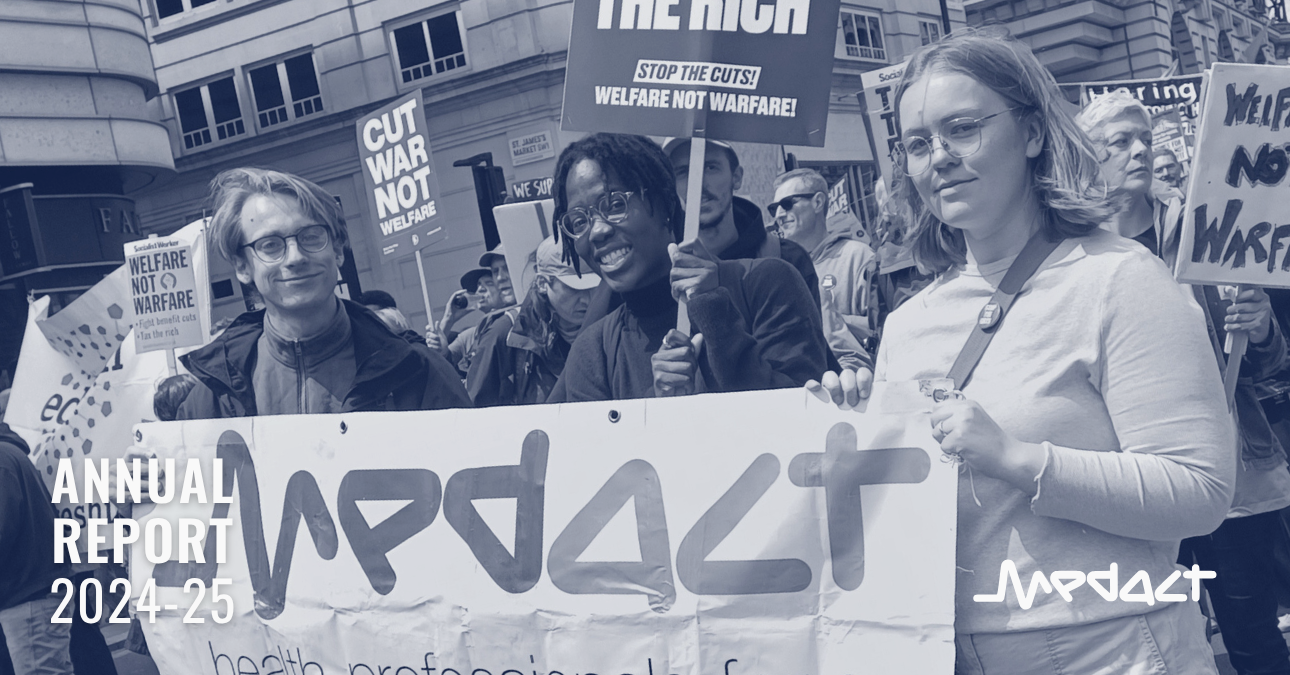
Leading the change from below – building a countervailing power for health justice
-
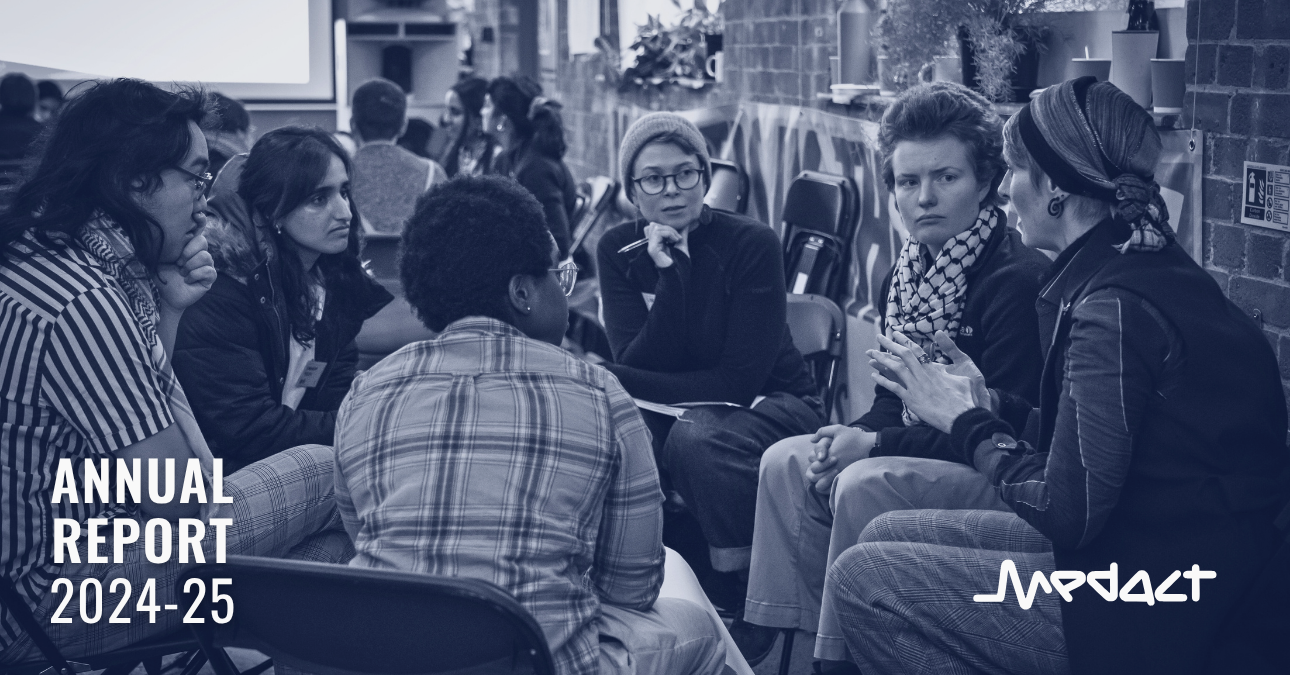
A growing movement for health justice
-
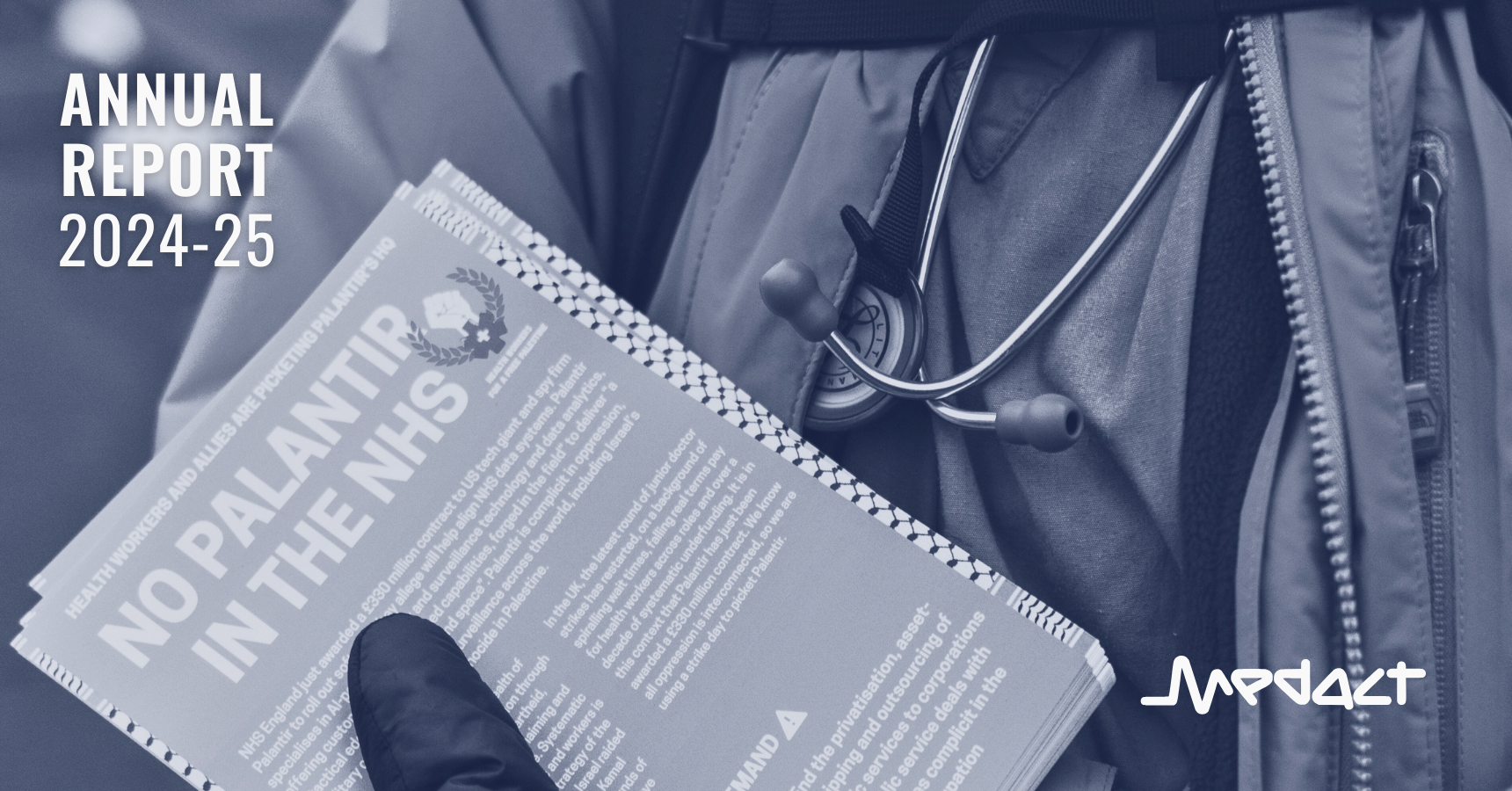
Gaza under siege, health solidarity across the globe
-
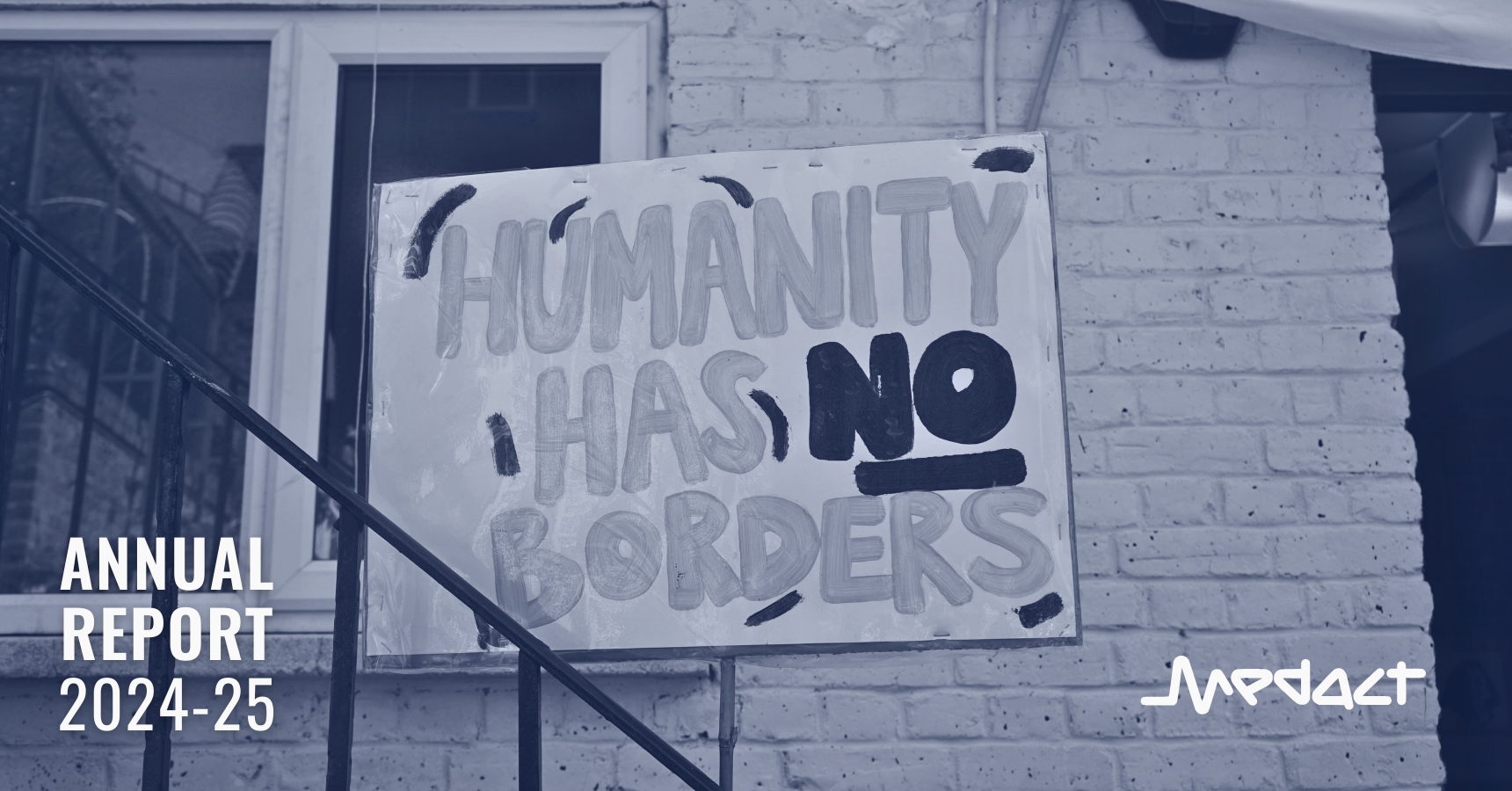
Towards abolishing borders and violence in healthcare
-

Climate justice means housing and energy justice
-
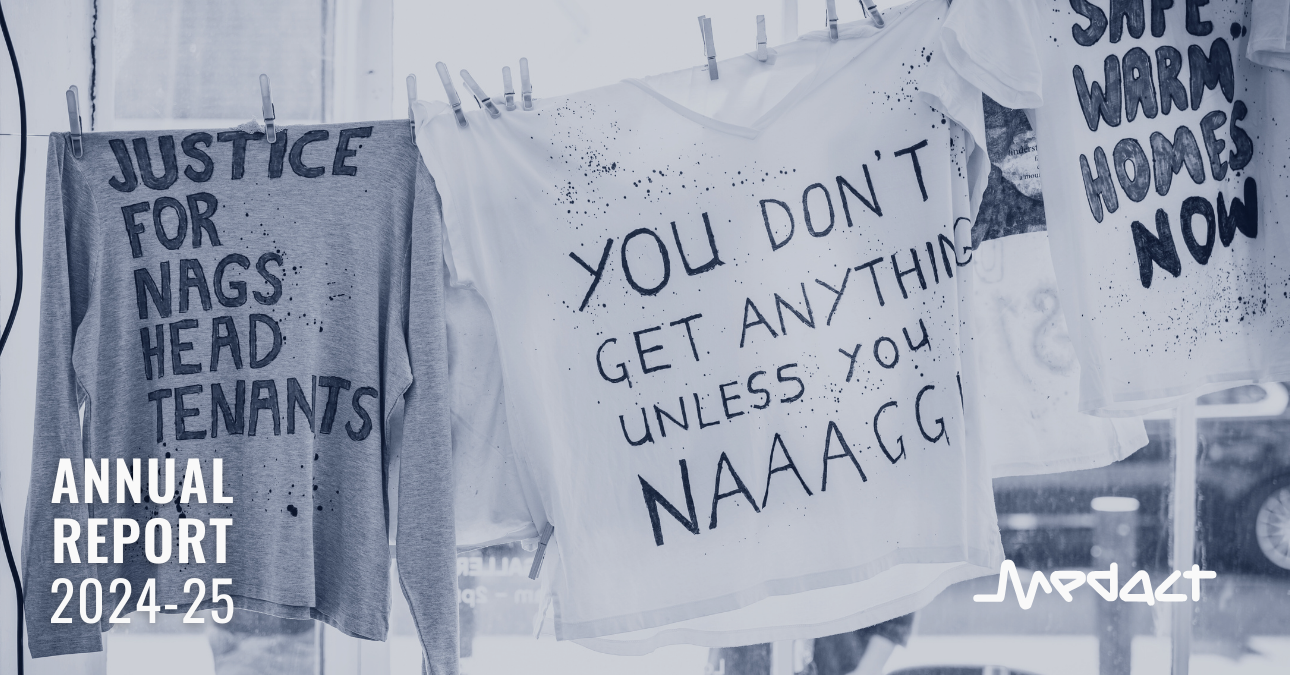
Homes for Health: How we win Health Justice
